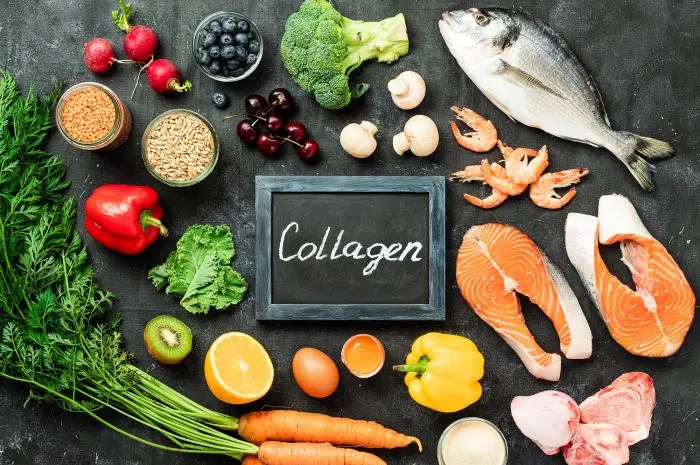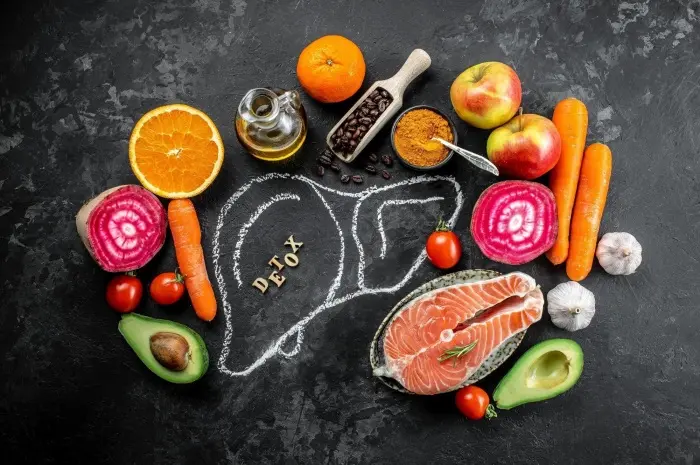What Is Collagen? Benefits, Food Sources and If It’s Worth It
Collagen is a vital protein that plays a significant role in maintaining the health and structure of various tissues in the human body.
It is the most abundant protein found in mammals, making up about 30% of the body’s total protein content. In this article, we will explore what collagen is, its benefits,food sources, and whether it’s worth incorporating into our daily lives.
Understanding Collagen
Collagen is a fibrous protein that provides structure and support to various tissues in the body, such as skin, bones, tendons, ligaments, and muscles. It is composed of amino acids, primarily glycine, proline, and hydroxyproline. These amino acids form a unique triple-helix structure, giving collagen its strength and resilience.
The Importance of Collagen in the Body
Collagen is essential for maintaining the integrity of our skin, as it helps to retain moisture and promote elasticity. Additionally, it supports joint health by acting as a cushion between bones, reducing friction and preventing joint pain. Furthermore, collagen contributes to gut health by strengthening the protective lining of the digestive tract.
The Benefits of Collagen
Improved Skin Health
As we age, the production of collagen in our bodies decreases, leading to the formation of wrinkles and loss of skin elasticity. By supplementing with collagen, we may notice a reduction in the appearance of fine lines and wrinkles, along with improved skin hydration and firmness.
Joint Health and Mobility
Collagen supplements have been found to alleviate joint pain and improve mobility, making it a popular choice for individuals with conditions like osteoarthritis.
Gut Health
Collagen helps to maintain the integrity of the gut lining, preventing leaky gut syndrome and supporting overall digestive health.
Muscle Mass and Strength
Collagen is a crucial component of muscle tissues, and supplementing with collagen may aid in preserving muscle mass and enhancing athletic performance.
Food Sources of Collagen
Collagen-Rich Foods
Bone broth is one of the best natural sources of collagen. It is made by simmering animal bones and connective tissues, releasing collagen and other beneficial nutrients into the broth.
Collagen Supplements
For those who have difficulty obtaining collagen from dietary sources, collagen supplements are available in various forms, including powders, capsules, and gummies.
Collagen and Aging
Collagen Depletion and Wrinkles
As we age, collagen production decreases, leading to the formation of wrinkles and sagging skin. Environmental factors like sun exposure and smoking can accelerate this process.
Supplementing Collagen for Anti-Aging
Collagen supplementation can be a valuable addition to an anti-aging skincare regimen, promoting skin elasticity and reducing the visible signs of aging.
Factors Affecting Collagen Production
Diet and Nutrition
Consuming a balanced diet rich in vitamins and minerals is essential for supporting collagen synthesis.
UV Exposure
Excessive sun exposure can break down collagen fibers, leading to premature aging of the skin.
Smoking and Pollution
Both smoking and pollution can negatively impact collagen production and contribute to skin damage.
Stress and Sleep
Chronic stress and inadequate sleep can interfere with collagen synthesis, affecting overall skin health.
Is Collagen Worth It?
The effectiveness of collagen supplementation varies from person to person. It is essential to consider individual needs and goals before deciding whether collagen is worth incorporating into one’s daily routine.
Incorporating Collagen Into Your Daily Routine
Collagen-Rich Recipes
Adding collagen to smoothies, soups, and stews is a simple and delicious way to increase collagen intake.
Tips for Choosing Collagen Supplements
When choosing collagen supplements, opt for products that are sourced from reputable manufacturers and undergo rigorous testing for quality and purity.
Conclusion
Collagen is a vital protein that plays a crucial role in maintaining skin, joint, and gut health. While aging and certain lifestyle factors can deplete collagen levels, supplementation and collagen-rich foods offer promising benefits. Before starting collagen supplementation, it’s advisable to consult with healthcare professionals to determine the most suitable approach for individual needs.



